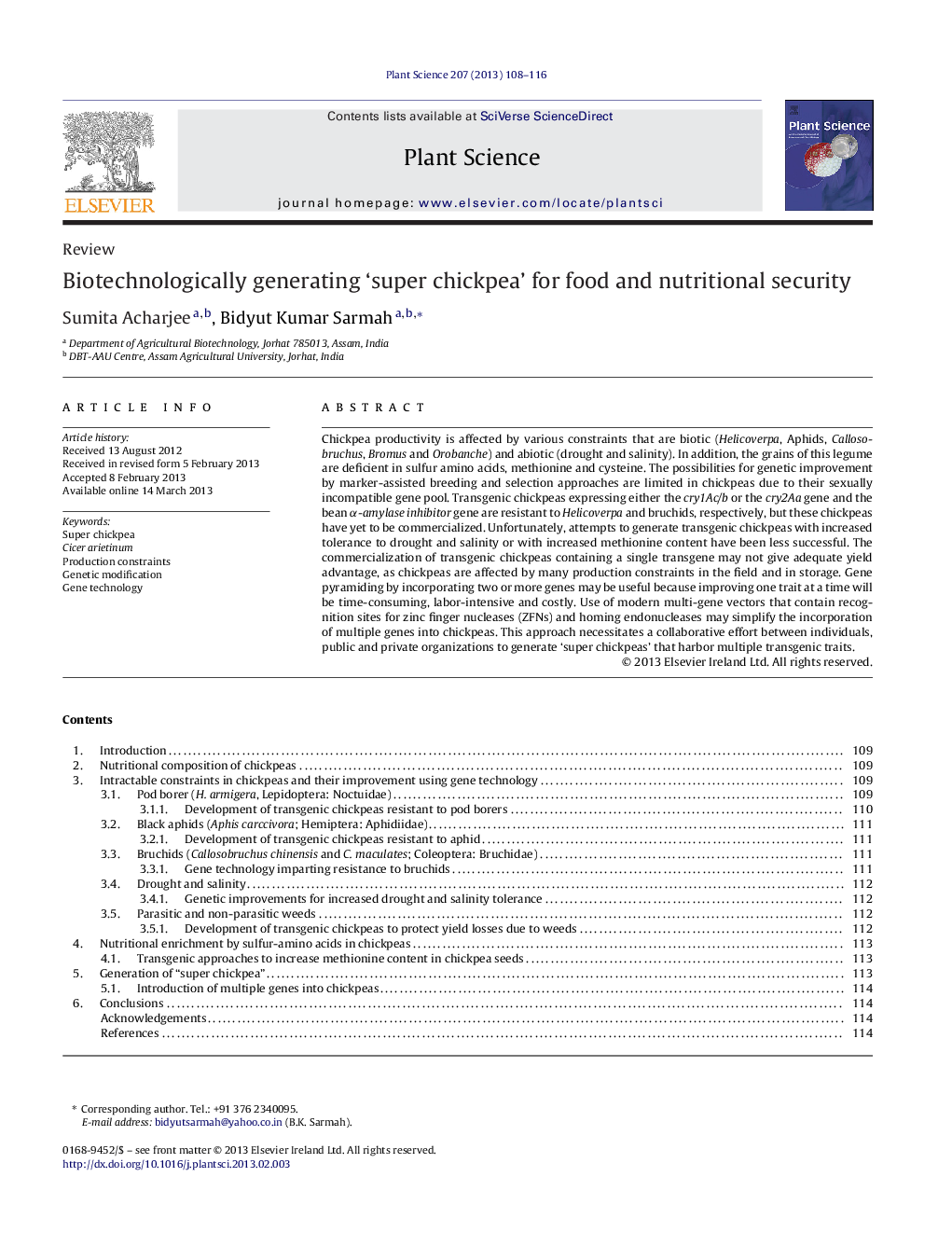| کد مقاله | کد نشریه | سال انتشار | مقاله انگلیسی | نسخه تمام متن |
|---|---|---|---|---|
| 2017133 | 1542078 | 2013 | 9 صفحه PDF | دانلود رایگان |

Chickpea productivity is affected by various constraints that are biotic (Helicoverpa, Aphids, Callosobruchus, Bromus and Orobanche) and abiotic (drought and salinity). In addition, the grains of this legume are deficient in sulfur amino acids, methionine and cysteine. The possibilities for genetic improvement by marker-assisted breeding and selection approaches are limited in chickpeas due to their sexually incompatible gene pool. Transgenic chickpeas expressing either the cry1Ac/b or the cry2Aa gene and the bean α-amylase inhibitor gene are resistant to Helicoverpa and bruchids, respectively, but these chickpeas have yet to be commercialized. Unfortunately, attempts to generate transgenic chickpeas with increased tolerance to drought and salinity or with increased methionine content have been less successful. The commercialization of transgenic chickpeas containing a single transgene may not give adequate yield advantage, as chickpeas are affected by many production constraints in the field and in storage. Gene pyramiding by incorporating two or more genes may be useful because improving one trait at a time will be time-consuming, labor-intensive and costly. Use of modern multi-gene vectors that contain recognition sites for zinc finger nucleases (ZFNs) and homing endonucleases may simplify the incorporation of multiple genes into chickpeas. This approach necessitates a collaborative effort between individuals, public and private organizations to generate ‘super chickpeas’ that harbor multiple transgenic traits.
► We have identified the intractable constraints of one of the important grain legumes, chickpea.
► Biotechnological tools appear to be the most suitable ways to overcome the production constraints.
► Enrichment of sulfur amino acids is required for improved nutritional quality of chickpea.
► Potential genes to impart resistance/tolerance were not adequately exploited in chickpea.
► We have suggested approaches to generate super chickpeas for improved production and high nutritive value.
Journal: Plant Science - Volume 207, June 2013, Pages 108–116